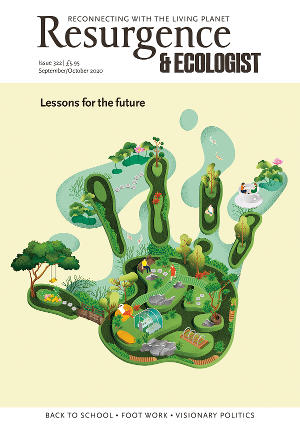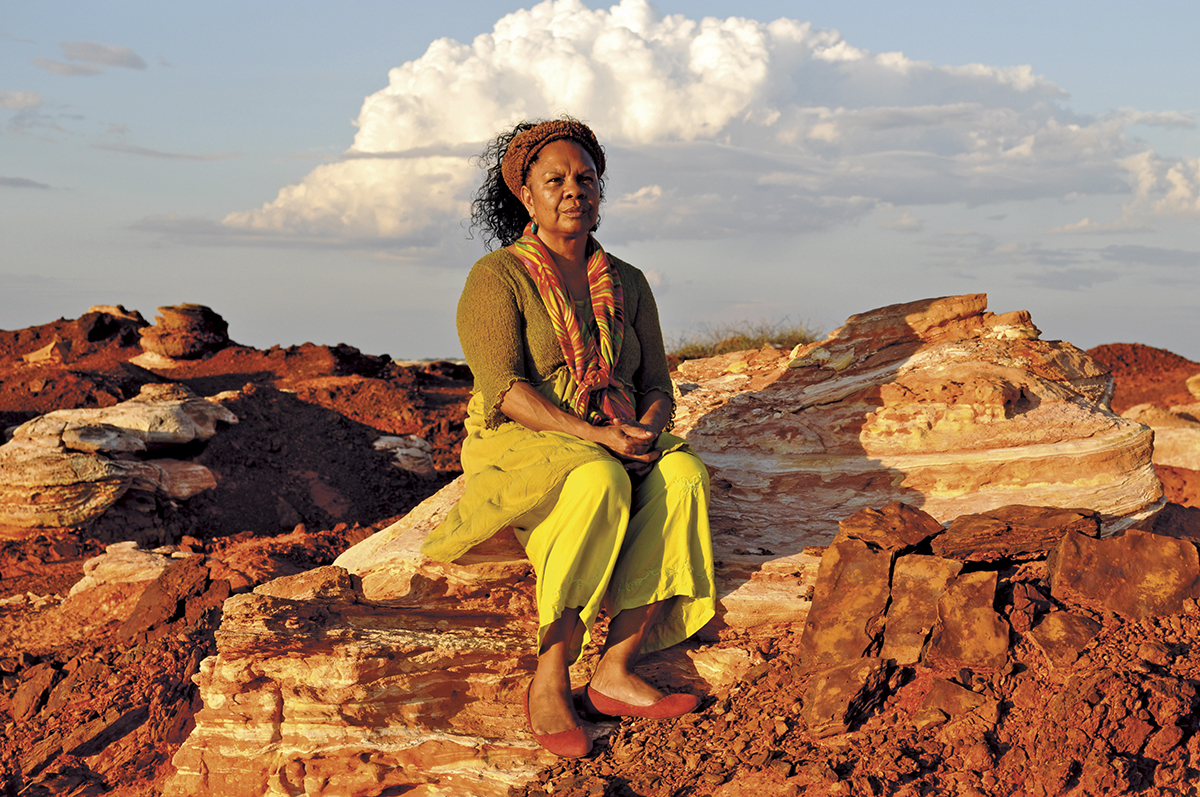Listen deeply, look closely! Indigenous narratives help us to see, hear and feel our places and our world in ways that reveal an animate, communicative, living Nature.
Everyone has ancestors who are indigenous to somewhere, and we all have the capacity to meaningfully engage with our places. Acknowledging living lands, living waters and traditional knowledge holders where we all live and work demonstrates our ethics and values and helps us remember there are layers of cultural, historic and contemporary meanings in our landscapes, waiting in full view.
Taking lessons from 60,000 years of Aboriginal science and reflecting the big questions relating to environmental challenges, we conducted a series of studies, which we brought together to form an Indigenous place-based methodology called Becoming Family. Our research paper, ‘Sharing a Place-based Indigenous Methodology and Learnings’, was published in the academic journal Environmental Education Research in June 2020.
Our research team includes a Nyikina Warrwa person of the Martuwarra Fitzroy River in the Kimberley region of Western Australia and two Noongar people of the Perth area, and each of us has ancestors who are indigenous to places elsewhere. Some of us have been learning and sharing – on this project, in a way – for most of our lives. It is all about relationships. This is what creates feeling, meaning and an ethics of care human to human and more-than-human to all.
The learning process we describe is place-based, applied through mentoring, sharing and reciprocal learning. It is ongoing, encompassing past, present and future in a circle of time. As we unite and build trust and respect, through our collective wisdom we deepen our relationships with our places and each other, and we become family. This family extends into our global networks, because we call others to us, and us to them. We learn to dream again as human beings in a dance of solidarity with our Mother Earth and Living Waters.
The basis of our work is a form of cooperative inquiry, a cyclical learning method developed by John Heron and Resurgence & Ecologist contributor Peter Reason where all involved are co-researchers and co-subjects. This facilitates ways of learning place: feeling, experience, reflection, concepts, and practice. The process begins with experiences with living places, forming an experiential knowing that is active and imaginal. This experiential knowing provides the foundation for reflective, creative learning such as poetry, song, dance and visual arts, forming a presentational or pattern knowing. Conceptual learning about the experience and reflections through discussion, critique or explanation follows. Learning a local Indigenous language is helpful here, rich in conceptual knowledge of relationship with specific places and ecologies acquired over thousands of generations. The resulting practice is expressed through skill grounded and evolving through the whole repeated cycle. Once the participants are familiar with the cyclical process, the ways of learning interpenetrate, and the more cycles conducted, the richer and deeper the lived experience. The practice comprises an attitude of living life as inquiry.
This process is complementary to an Indigenous way of learning and knowing, where these methods and insights are cycled over lifetimes of daily and seasonal experience, dance and art, storytelling and decision-making, producing a rich intimate knowledge of Country – a familial relationship with one’s place. In this worldview, Country is living, responsive and caring, and is capitalised to denote an Indigenous understanding of one’s place, which connects people, socio-economic systems, language, spirit and Nature through interrelationship. These stories rest on a science that is relational, that recognises interconnections and interdependencies, emergence and uncertainty, like a science of complexity, and that feels and hears living Country.
The learning process we describe facilitates the everyday living and learning of an Earth-based consciousness: one that enriches transformative sustainability education through recognising meanings and stories in landscape. It celebrates Indigenous and localised ways of knowing, being and doing, through feeling and hearing Country and her many voices. In Australia, this process links with the longest environmental education systems in the world. Everyone has an inherent right to learn that joy in place, along with the responsibility to care for Country. This place-based way of learning is a lifetime commitment involving everyday actions for change, a whole-of-life education dedication.
In Nyikina language there is a concept called liyan. It is our moral compass, our intuition, which guides us through life. Liyan can teach us to feel and build our own relationship with Country. Liyan is our inner spirit, and when it connects with the spirit of Country it heightens our sense of wellbeing, of balance and harmony. Country has this liyan too, and it is reciprocal. In Noongar language, this same concept is wirrin. We all have this capacity. But first we must have love for Country, and Country will have love for us. We set out with this trust.
Listen deeply, look closely, be attentive! You can hear, feel and sense an animate, communicative, living Nature in place. Place is the medium of learning, learning is living, place is life!








